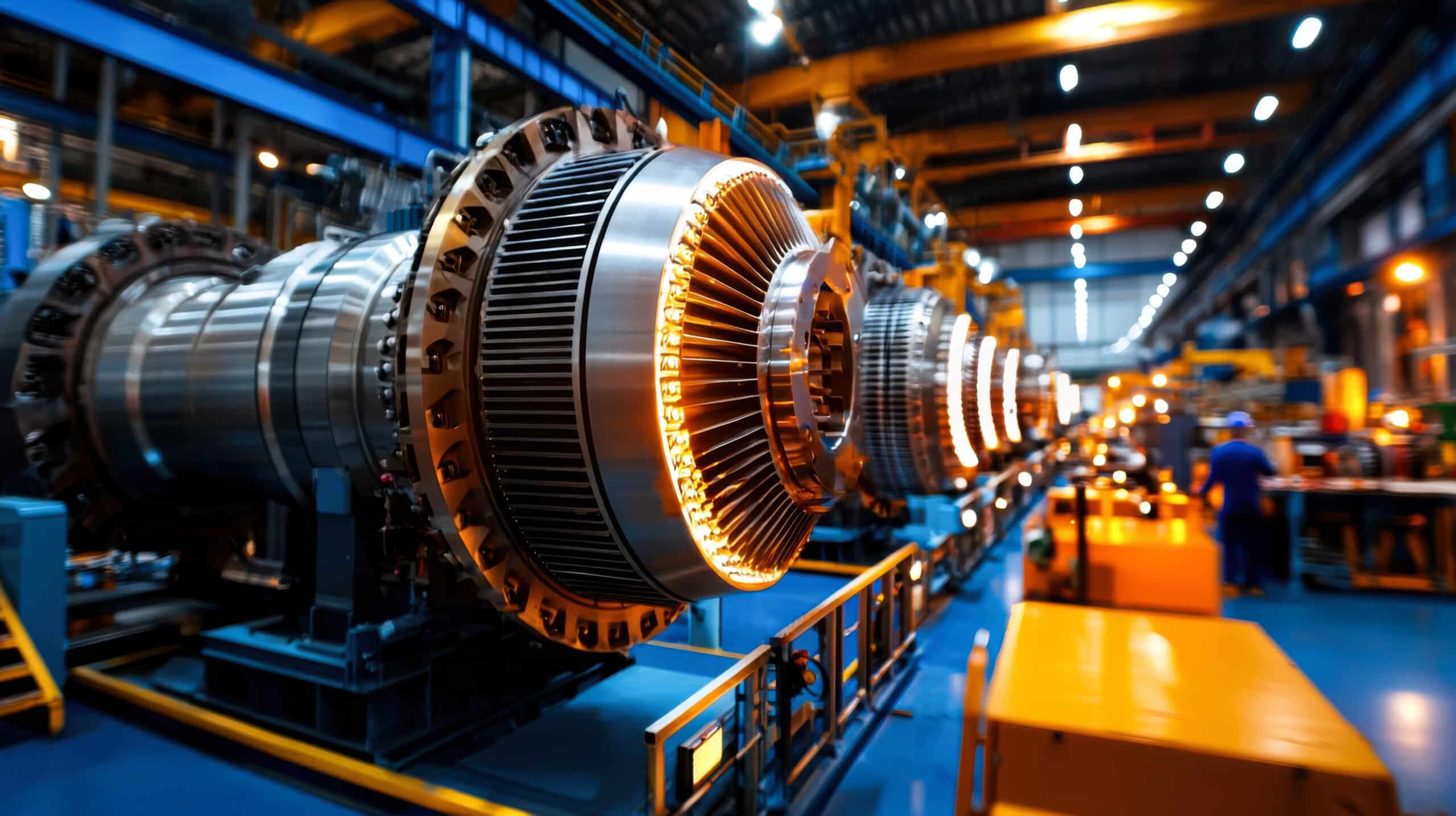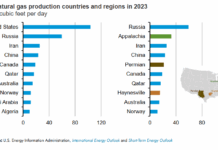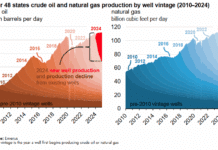
Global demand for natural gas turbines is surging due to rising electricity needs from AI-driven data centers, electrification, and coal-to-gas transitions, but production is severely constrained. Siemens Energy, GE Vernova, and Mitsubishi Heavy Industries, who dominate the market, can’t scale fast enough, creating a supply bottleneck that threatens over $400 billion in planned gas power projects, especially in developing nations. While gas is seen as a “bridge” fuel to renewables, critics warn it could entrench fossil fuel dependency, according to Bloomberg. High costs, long lead times, and limited manufacturing capacity mean gas turbines are now a major obstacle in the global energy transition. They write:
Inside Siemens Energy AG’s vast glass and steel assembly hall in central Berlin, engineers are close to completing a 500-ton turbine for a natural-gas power plant. Workers have spent weeks on painstaking tasks with the accuracy of a watchmaker, grinding metal to millimeter-widths and then precisely placing hundreds of parts with intricate patterns.
It’s necessary work because the shaft holding them together must turn at 3,000 revolutions a minute. Eventually, the interior is encased in a protective metal jacket, the culmination of months of assembly and testing, one of roughly 50 finished products a year that will leave the factory on 180-wheeler vehicles, bound for ships headed to the North Sea.
Siemens Energy, alongside its main competitors GE Vernova Inc. and Mitsubishi Heavy Industries Ltd., account for more than 70% of production capacity. […]
Gas executives faced the ire of climate activists when they called gas a “bridge” from coal to clean power. With the rapidly growing demand for power, these executives now think gas will be central to the future.
The turbine shortage risks exacerbating a major divergence in climate efforts between poor and rich nations. […]
The crux of the bottleneck is that there are only three major suppliers for the largest turbines used in power plants across a handful of factories from Germany to Japan, and they aren’t able—or willing—to increase production capacity fast enough to meet rapid demand. […]
“It’s the beauty of our industry,” said Siemens Energy’s Schmuecker. “It has super high entry barriers, because it costs a lot of money to develop a gas turbine and it requires years of experience.”
Read more here.



